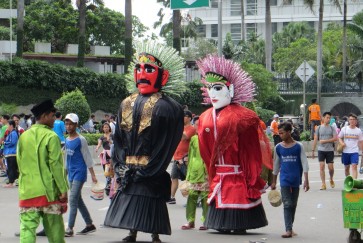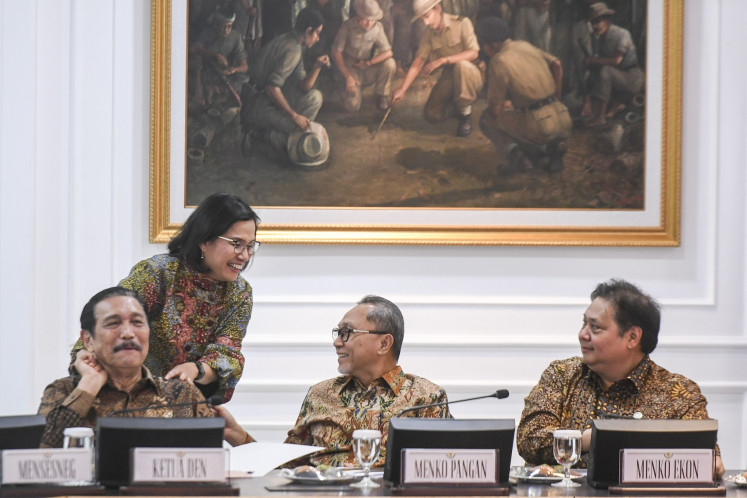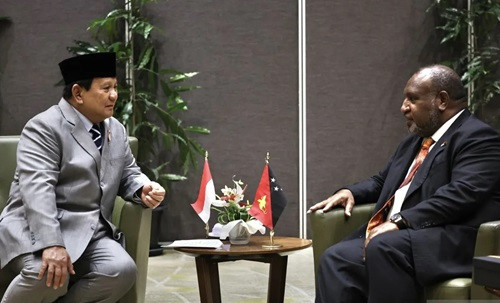The Last Templar
Portrait of the diplomat: Antonio dâOliveira Pinto da FrançaAntonio dâOliveira Pinto da França died in Lisbon on June 4
Change text size
Gift Premium Articles
to Anyone

P
span class="caption" style="width: 298px;">Portrait of the diplomat: Antonio d'Oliveira Pinto da FrançaAntonio d'Oliveira Pinto da França died in Lisbon on June 4. He was 77.
Da França is best remembered here for his book Portuguese Influence in Indonesia which remains one of the most informative works on the subject. He served as the Portuguese consul-general to Indonesia from 1965 to 1970. Indonesia was his first foreign posting.
When da França arrived in Indonesia he was 30. Both he and his wife had the attractive good looks of film stars, with hearts wide open to the many people they met on their numerous travels throughout the archipelago, in particular the eastern islands, where the Portuguese influence was always strongest.
Possessing charm and intelligence as well as a range of interests spanning history, music, linguistics, the arts and politics, da França quickly established a wide circle of friends and admirers. 
'Antonio held memorable dinners with great food and interesting people at a time when Jakarta was rather empty, with barely any social life. He was also a talented raconteur who kept everyone spellbound with his stories,' recalls Aji Damais, the erstwhile head of the Jakarta History Museum and another friend of da França.
Da França used to recall with humor that he was stuck in Bali for almost a week during the immediate aftermath of the abortive Communist coup in 1965, resulted in frantic telegrams from Lisbon demanding to know what was happening. He was in such a state of nervousness that his wife, Sofia, told him that he would have a heart attack if he did not calm down.
As man unafraid to speak his emotions, da França once described to me how deeply Indonesia touched him when he first came here. He spoke of Indonesia's beautiful islands and seas, its peoples, its culture and most of all the lingering remnants of Portuguese influence that he came across in his travels around Indonesia.
Himself a descendant of Vasco da Gama, one of Portugal's greatest explorers, da França possessed a sentiment that is not difficult to understand. In Lisbon, he lived in the house of da Gama's brother as well as having a country house in an old Capuchin priory close to the great monastery of the Order of Christ in Tomar, part of which once belonged to da França's wife's family. 
The monastery, founded in 11th century, was home to the Knights Templar, who made their great wealth from protecting Christian pilgrims on the way to the Holy Land. Later they became the bankers for the pilgrims. Prince Henry the Navigator was the prior of the order and after they were disbanded by the Pope, their property and wealth was held for them by the kings of Portugal until a new order, the Knights of Christ, could be established.
It was here in the monastery of Tomar that the decision was made to sail into the frightening and uncharted oceans to look for the Indies and their fabled spices. A friend once said of da França, who loved to take visiting friends on tours of the monastery and regale them with his stories of its history, 'You are a Templar; the last Templar!'
Little wonder then that he was touched by that story, which he found in Indonesia and ended up recording in his book Portuguese Influence in Indonesia. Aji Damais refers to the book as the pioneer of Portuguese studies in Indonesia. 'It was not a deeply scientific book but it was good because it recorded things that were disappearing and made people aware and interested in them.'
In his book da França sets down in loving detail the many different areas in Indonesia where the Portuguese influence can still be found in language, in costumes, in ceremonies, in music, in food, and in historical buildings and artifacts.
Yanti Budyarto, herself the daughter of an Indonesian diplomat, received a scholarship with the help of da França to research the similarities of words found in Portuguese and Indonesian, commented that 'Whether we like it or not, the Portuguese influence will always be there because there are so many Portuguese words in the Indonesian language ' and these are really words that we use in our daily language. Words such as mentega, kereta, kemeja, benderia, lemari, meja, pesta and hundreds more.'
As with many intelligent and idealistic people in Indonesia and Portugal, da França was appalled and saddened by the events in East Timor. He became the special envoy of the Portuguese minister of foreign affairs to negotiate the release of Portuguese military detainees still held in East Timor and was later awarded several decorations by the Portuguese government, including the Grand Cross of the Order of Christ and the Grand Cross of the Order of Merit. 
Many years later Ana Gomes, the first Portuguese ambassador to Indonesia after the East Timor debacle said that ' time António's contagious love for Indonesia whetted even more my curiosity to discover the country, its people and both the secular historical and cultural Portuguese legacy there. The advice of this dear friend became invaluable to the success of the mission entrusted to me and opened doors to the many friends he had left there. He was a prince of Portuguese diplomacy and we will miss him terribly.'
After more than 40 years of marriage, da França leaves behind his widow, Sofia, a decorator who organized the great dinners so fondly remembered by Indonesians and who also provided da França with the calmness, love and stability that his more mercurial nature required.
Both da França and his wife had aristocratic antecedents and no difficulty at all in making friends with the Indonesian aristocracy, from Dom Sentis Alexius da Silva, the Raja of Sika to the charming Manguknegaran princesses Rosati Kadarisman and Satuti Yamin.
'I remember going with my parents to his dinner parties and meeting Dewi Sukarno for the first time. I shall never forget she was wearing a beautiful pink sarong by Goh Tik Swan and later after he left Indonesia my sister and I met Antonio again in Paris and he was still as handsome and as kind to us,' said Princess Rosati. Through the years Antonio continued to greet Indonesian visitors with warmth, interest and delight. Later he founded and presided over ALIAC, the Portuguese-Indonesian friendship association.
With da França's passing, Portugal has lost one of her most notable diplomats and Indonesia has lost a good friend.

' Photos courtesy of Bibliotecando em Tomar 2013, Tamalia Alisjahbana and Portuguese Influence in
Indonesia.









